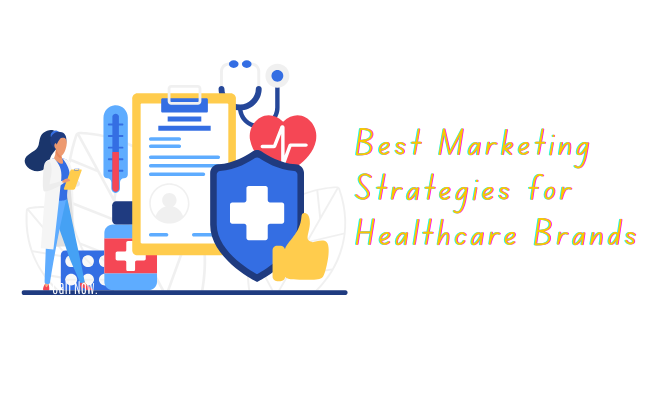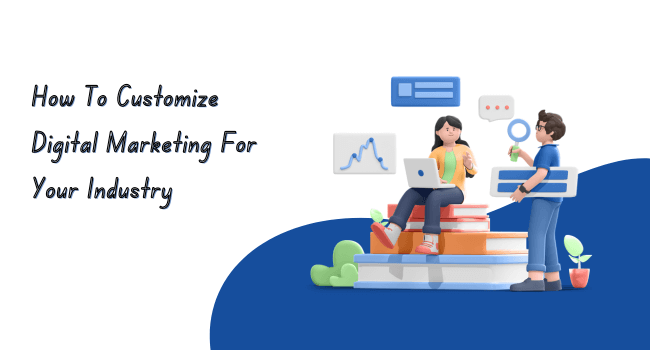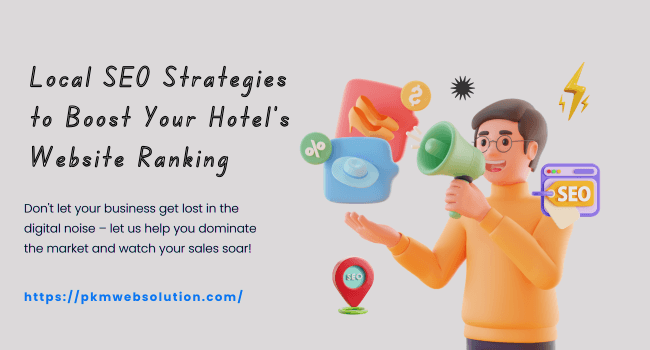
Healthcare marketing has come a long way, now focusing on creative ways to connect with patients. As people want better healthcare, competition rises, and healthcare businesses need to stand out. With smart marketing strategies, smaller healthcare providers can compete with larger ones without spending a lot. Digitization helps smaller providers, while patients can now look up and compare options online, reading reviews before deciding. So, healthcare providers need to set themselves apart. This article will explore some unique marketing ideas that can help make your healthcare business shine.
What is Marketing in Healthcare?
Healthcare marketing is all about promoting and selling healthcare products or services. This can mean reaching out to patients, healthcare professionals, and other important people. Healthcare businesses use marketing to get more patients, keep them happy, and make more money. Let’s break down what healthcare marketing really is and look at how it helps healthcare businesses grow.
Why is Healthcare Marketing Important?
Healthcare competition is growing, and there are more options for patients than ever. Marketing helps you stand out by showing what makes your services unique and valuable. It also lets you highlight your skills and specialties.
With strong marketing, you can:
- Make Patients Happier: Patients often judge the quality of healthcare based on online reviews. Good reviews show patients that you provide quality care, which builds trust.
- Attract More Patients: Marketing is essential for bringing in new patients, growing your practice, and increasing income.
- Share Correct Information: Patients look up health info online, but not all of it is accurate. Marketing allows you to give patients the right information and reduce confusion.
- Increase Brand Awareness: Marketing helps more people know about your brand and remember it, which keeps patients coming back.
Now, let’s dive into the healthcare marketing strategies that can help your business grow.
10 Top Healthcare Marketing Strategies
Build a Strong Online Presence
Around 5% of Google searches are about healthcare. Your website is the main part of your digital strategy, helping you reach more people online. Include essential details like your specialties, treatments, doctors, and facilities. Make sure your site is easy to use, well-designed, and works smoothly on phones. People should find what they need in just a few clicks. But remember, your website isn’t the only source. Many people check social media too, so keep your profiles updated with useful information to build trust. We’ll dive deeper into social media later in the article.
PPC
In 2021, healthcare spent more on digital ads than TV ads for the first time. Digital marketing works well in healthcare because it helps you reach your target audience directly and see quick results. PPC (Pay-Per-Click) is a strong strategy here. With PPC, you can create ads and measure their impact instantly. Google Ads lets you run PPC campaigns by bidding on specific keywords. Social media platforms like Facebook, Instagram, and LinkedIn also offer PPC ads that you can aim at specific groups. You can even place PPC ads on health-related websites to reach more people interested in healthcare.
Online Reputation Management
To manage online reviews, start by asking patients to leave feedback. You can request this through email or in person. After someone posts a review, respond quickly to both positive and negative ones. This shows you care about their opinions and are open to feedback. You can also gather input with patient satisfaction surveys. These surveys can be done in-person, on the phone, or online, asking about their experience, staff communication, wait times, and cleanliness. The best way to improve reviews is by giving great care, being friendly, responsive, and ensuring patients receive top-quality treatment.
Search Engine Optimization
Search Engine Optimization (SEO) helps your healthcare business get noticed online and attract more visitors to your website. Research shows that search engines bring in three times more traffic to hospital sites. To improve your ranking, focus on specific keywords related to your services, like treatments. Start with keyword research to find what patients search for using tools like SEMrush. Optimize your website by using these keywords in titles and headings. Build quality backlinks from trusted sites and make sure your local info, like your address and hours, is accurate on Google.
Leverage Content Marketing
Content marketing is all about creating and sharing useful and interesting information to help your patients. This can include blog posts that explain health conditions, treatments, and tips for staying healthy. Social media is another great place to share content and connect with people. You can post articles and health tips on platforms like Facebook and Instagram. Creating eBooks can give more detailed information for those who want to learn more. Making educational videos can also help explain health topics and show what services you offer.
Install Chatbots
Patients really want to chat with their healthcare providers online. Research shows that the US market for healthcare chatbots will grow a lot by 2025. Since you can’t answer phone calls all day and night, a chatbot can help with basic questions from new patients anytime. It also collects patient information, helps them navigate the website, and schedules appointments. Chatbots make it easier for patients and can greatly improve your team’s productivity. Overall, using chatbots is a smart way to keep everything running smoothly.
Experiment with Influencer Marketing
These days, people often trust influencers even more than their friends. Working with influencers to create relevant content and share it on social media can help boost your brand’s visibility. Many patients use social media to share their personal healthcare journeys. This lets them connect with others, find support, and learn about their conditions and treatments. When influencers share their experiences, it builds an emotional bond with their followers. Just make sure the influencer doesn’t give direct medical advice and follows the rules. Choose trusted influencers who respect your guidelines.
Using Phone Calls to Get More Appointments
Most patients, about 88%, like to book their healthcare appointments by phone. Even when they check online, they prefer talking to a real person before making a booking. That’s why you should always add your phone number to your online ads. We know healthcare questions can pop up anytime, and it’s tough to have someone available all the time. To solve this, consider getting a hosted PBX with an interactive voice menu. This setup gives patients the info they need to book appointments anytime, even without a person answering the phone.
Use the Power of Automation
Using automation in marketing can really change the game for you. It helps you handle boring, repetitive tasks and cut down on mistakes, so you get better results. This way, you can spend more time on important stuff like planning your campaigns and measuring success. You can create templates for emails and SMS messages to save time and respond faster. Once your marketing kicks in, you’ll get many inquiries, so automating how you manage these leads can help you respond quickly and get more conversions. Smart tools also help you create easy reports for better insights and quicker decisions.
Track and Analyze your Marketing Campaigns Regularly
To make your marketing campaigns better, you need to track and analyze them regularly. After trying out different marketing strategies, ask yourself, “What’s working, and what needs improvement?” You can find the answers by checking your marketing stats. Successful healthcare marketing relies on data. Understanding what works and what doesn’t is key to making progress. Start with tools like Google Analytics and Google Search Console to gather information. If you want to boost your marketing game, consider using a complete marketing automation platform.
Challenges in Healthcare Marketing
Marketing in healthcare can be harder than in other industries for a few reasons.
First, the healthcare field has a lot of rules. These rules are there to protect patient privacy and make sure healthcare providers tell the truth about their services. Because of this, it can be tough to promote healthcare services and facilities. For example, healthcare businesses must follow HIPAA regulations.
Second, healthcare is complicated and always changing. The COVID pandemic pushed many things online, leading to more virtual consultations. Now we have hospitals where you can book appointments, get prescriptions, and access reports all digitally. Keeping up with new trends and technologies can be difficult, which makes it a challenge to create effective marketing strategies.
Third, healthcare involves sensitive personal information. Patients might not want to share their details with providers, especially if they don’t trust them. This can make it hard for healthcare providers to connect with their target audiences.
However, with good planning and smart strategies, you can reach your marketing goals.
Using a healthcare CRM (Customer Relationship Management) system can really help. It lets you keep all your patient information in one place, making it easier to send them personalized messages.
Plus, a CRM helps you see how well your marketing campaigns are doing, so you can keep focusing on what works and change what doesn’t.
FAQs
What are the 4 main marketing strategies?
The four main marketing strategies are market penetration, market development, product development, and diversification.
What is strategic marketing in healthcare?
Strategic marketing in healthcare makes sure the right info gets to the right people using channels like social media and community outreach.
What is the marketing strategy for healthcare in 2024?
In 2024, healthcare marketing focuses on personalized campaigns that use data and AI to connect directly with patients.
What is branding strategy in healthcare?
Healthcare branding creates a recognizable identity for organizations to shape how patients and the public see them.
Conclusion
Healthcare marketing has its own challenges. Marketers need to find the right balance between sharing information and making patients feel comfortable. We hope these tips help you improve your marketing and achieve your goals. If you want complete healthcare CRM software to manage inquiries, communicate with patients, track campaign results, and more, take a look at PKM Web Solutions.



